Balinese culture is a vibrant tapestry of daily rituals, spiritual celebrations, and sacred ceremonies that reflect the island’s deep devotion to Balinese Hinduism. Unlike anywhere else in the world, these ceremonies are woven into daily life, transforming the island into a living, breathing expression of gratitude, reverence, and community spirit.
From daily offerings made at family shrines to grand temple festivals that span days, every ceremony has a purpose and symbolic meaning—honoring gods, cleansing spirits, or celebrating life milestones. For travelers, witnessing or participating in these ceremonies is a rare and enriching opportunity to experience the soul of Bali.
🌸 1. Canang Sari – Daily Offerings of Gratitude
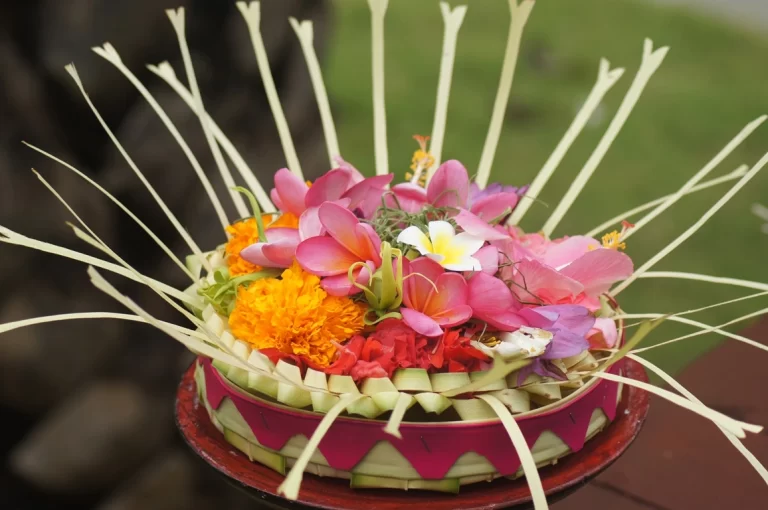
Canang Sari are the small, handwoven palm-leaf baskets filled with flowers, rice, and incense that you’ll see everywhere in Bali—on sidewalks, altars, and even scooters. Though simple in appearance, they carry profound meaning.
🌿 What It Represents:
Canang Sari offerings are made every morning as a symbol of gratitude to the gods for peace and prosperity. Each item in the offering holds symbolic value:
- Flowers face different directions to honor various deities.
- Rice represents sustenance.
- Incense connects the physical offering to the spiritual world.
🙏 Traveler Tip:
Always walk around—not over—offerings on the ground, and avoid disturbing them. Seeing a local prepare one is a beautiful moment of mindfulness.
🪷 2. Odalan – Temple Anniversary Ceremonies
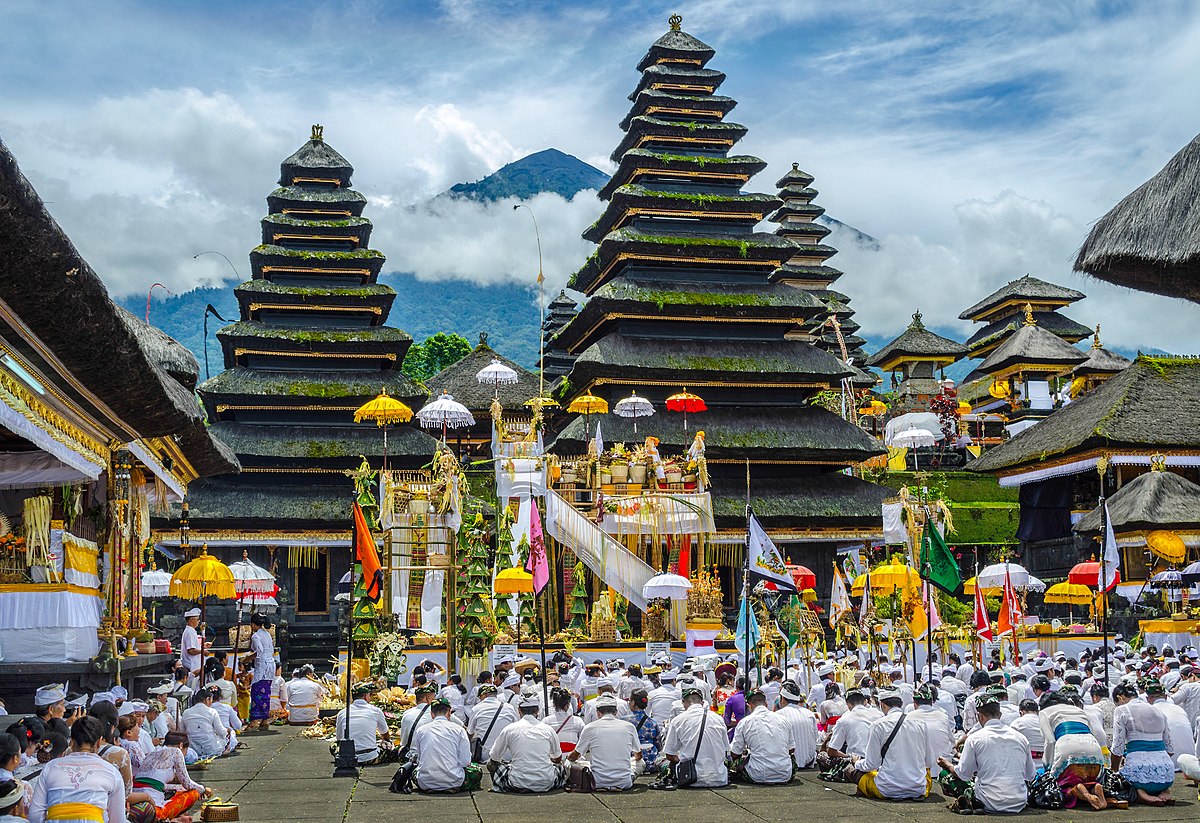
Every temple in Bali celebrates an Odalan, or temple anniversary, based on the 210-day Balinese Pawukon calendar. With thousands of temples on the island, there’s always an Odalan happening somewhere.
🌺 What It Represents:
Odalan is a time to honor the temple’s founding spirit, involving days of prayers, offerings, music, and dance performances. Locals dress in their ceremonial best and bring elaborate offerings. The atmosphere is vibrant and joyful, yet deeply spiritual.
🕯️ Traveler Tip:
Travelers are often welcome to observe or even join if dressed appropriately (sarong and sash). It’s best to go with a local guide who can explain the rituals and help you participate respectfully.
🌕 3. Galungan & Kuningan – Victory of Dharma Over Adharma
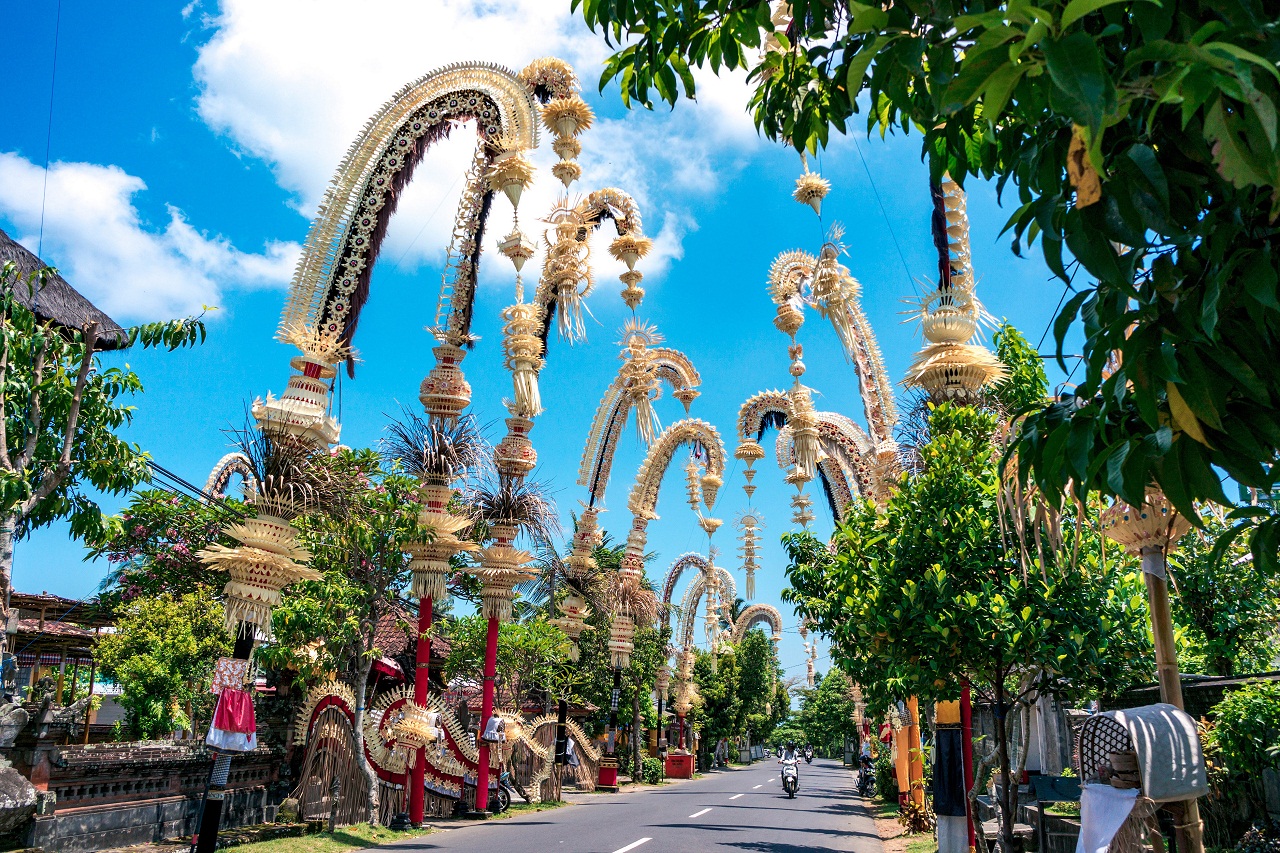
Galungan, celebrated every 210 days, is one of Bali’s most important holidays, marking the triumph of good (Dharma) over evil (Adharma). It lasts for 10 days, ending with Kuningan, the farewell to visiting ancestral spirits.
🌾 What It Represents:
During Galungan, it’s believed that the spirits of ancestors return to Earth. Families prepare grand offerings and erect penjor (bamboo poles adorned with coconut leaves, fruits, and flowers) outside their homes as a symbol of prosperity and devotion.
🍃 Traveler Tip:
This is a great time to witness village processions, temple rituals, and traditional dress. Just be aware that many businesses close or run limited hours during these days.
💀 4. Ngaben – Balinese Cremation Ceremony
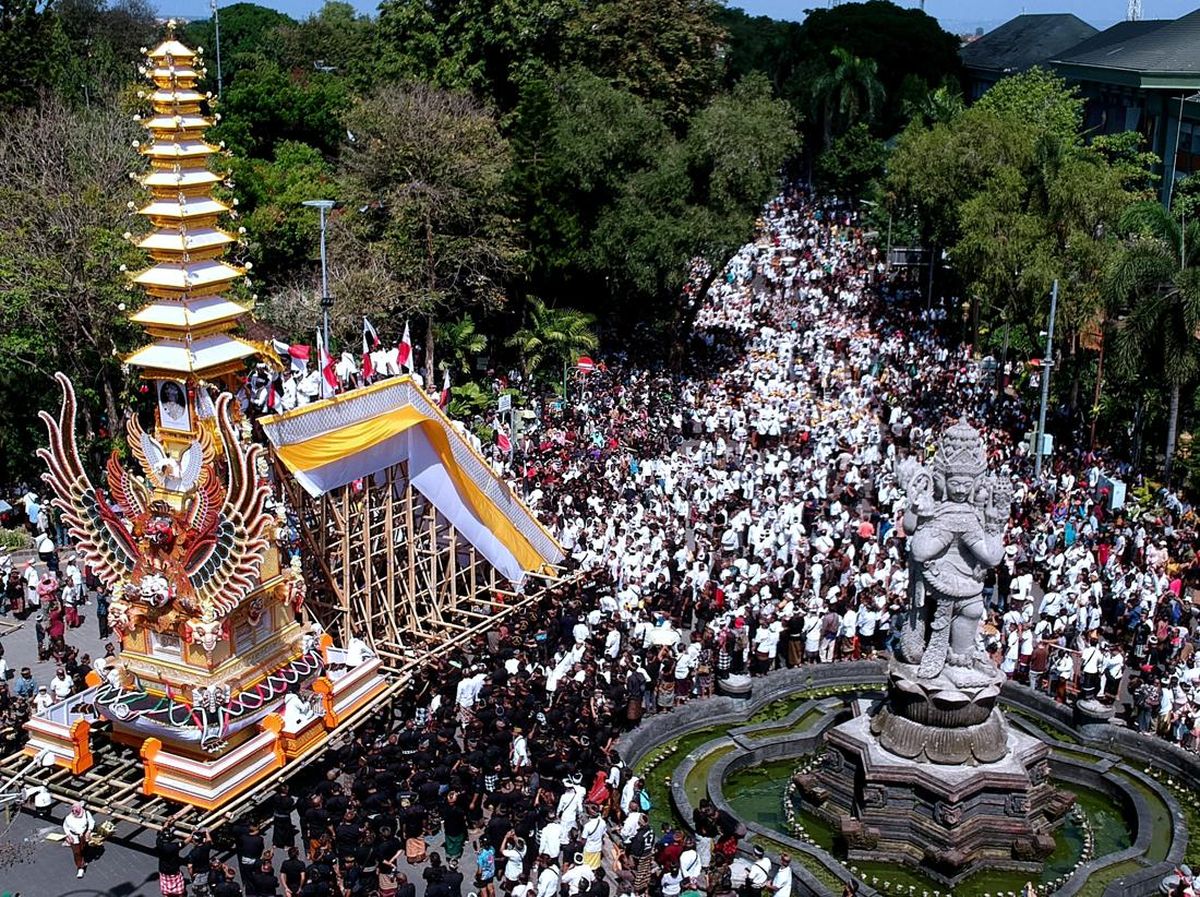
Ngaben is the Balinese royal road to the afterlife—a spectacular and sacred cremation ceremony that guides the soul to reincarnation.
🔥 What It Represents:
Death in Bali is not an end but a transition. Ngaben involves elaborate processions, gamelan music, prayers, and the symbolic burning of the body, which releases the spirit for its next journey. Ceremonies can be private or massive public events for royals and high priests.
🕊️ Traveler Tip:
Ngaben is an extraordinary experience, but it’s important to attend with respect and sensitivity. If invited or viewing a public one, dress modestly and follow the lead of locals.
🎊 5. Melasti – Purification Before Nyepi
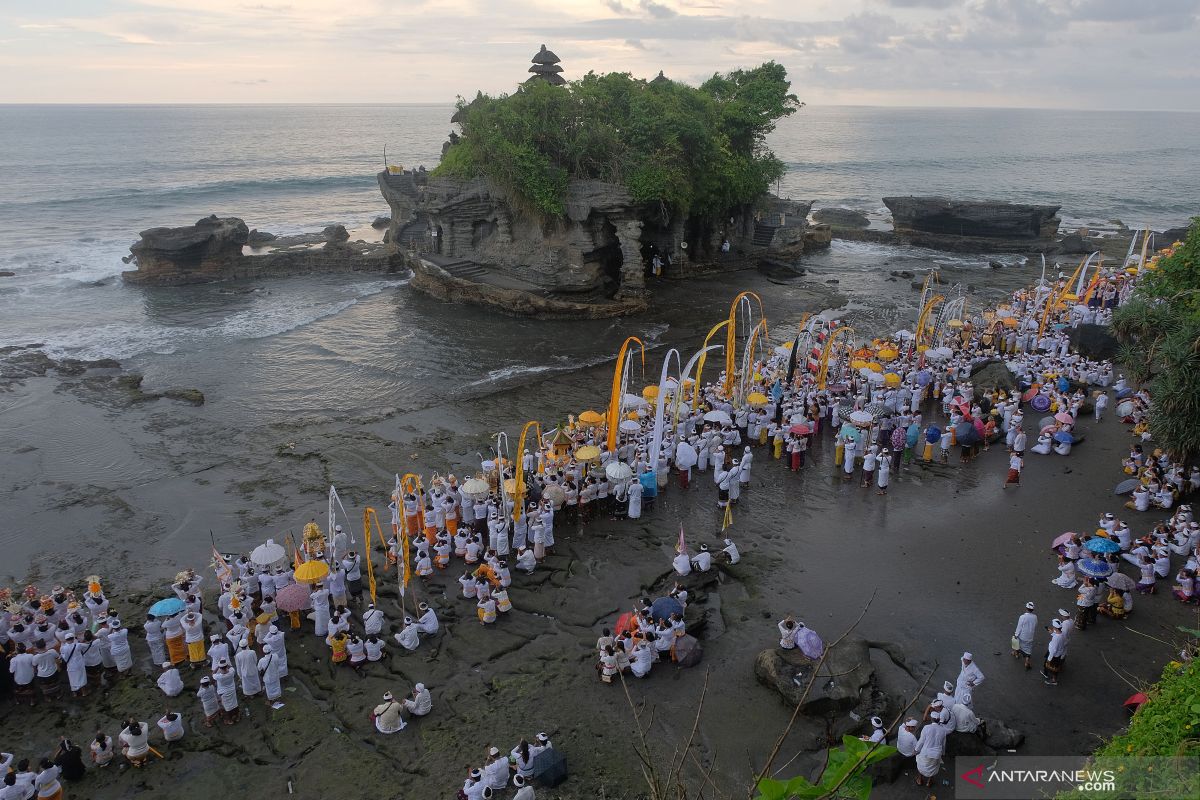
Held a few days before Nyepi (Balinese New Year), Melasti is a spiritual purification ceremony where sacred temple objects and offerings are brought to the sea for cleansing.
🌊 What It Represents:
Melasti symbolizes washing away past sins and impurities. Devotees, dressed in white, form long, colorful processions heading to the beach or sacred springs, accompanied by music and chants.
🌅 Traveler Tip:
If you’re near a beach temple like Tanah Lot or Candidasa, Melasti is a powerful sight—hundreds of devotees in ceremonial procession against the backdrop of Bali’s ocean and sky.
🕯️ 6. Nyepi – Bali’s Day of Silence

Nyepi is unlike any other celebration in the world. It marks Balinese New Year but is observed in complete silence and reflection. For 24 hours, the entire island goes quiet—no lights, no travel, no noise.
🌑 What It Represents:
Nyepi is a spiritual reset, meant for introspection, meditation, and self-purification. It’s preceded by Ogoh-Ogoh parades, where massive demon statues are paraded and burned to drive away negative forces.
🌌 Traveler Tip:
During Nyepi, even the airport shuts down, and guests are expected to remain in their hotels. It’s a rare opportunity to disconnect, reflect, and witness a cultural phenomenon.
🌼 7. Saraswati Day – Honoring the Goddess of Knowledge
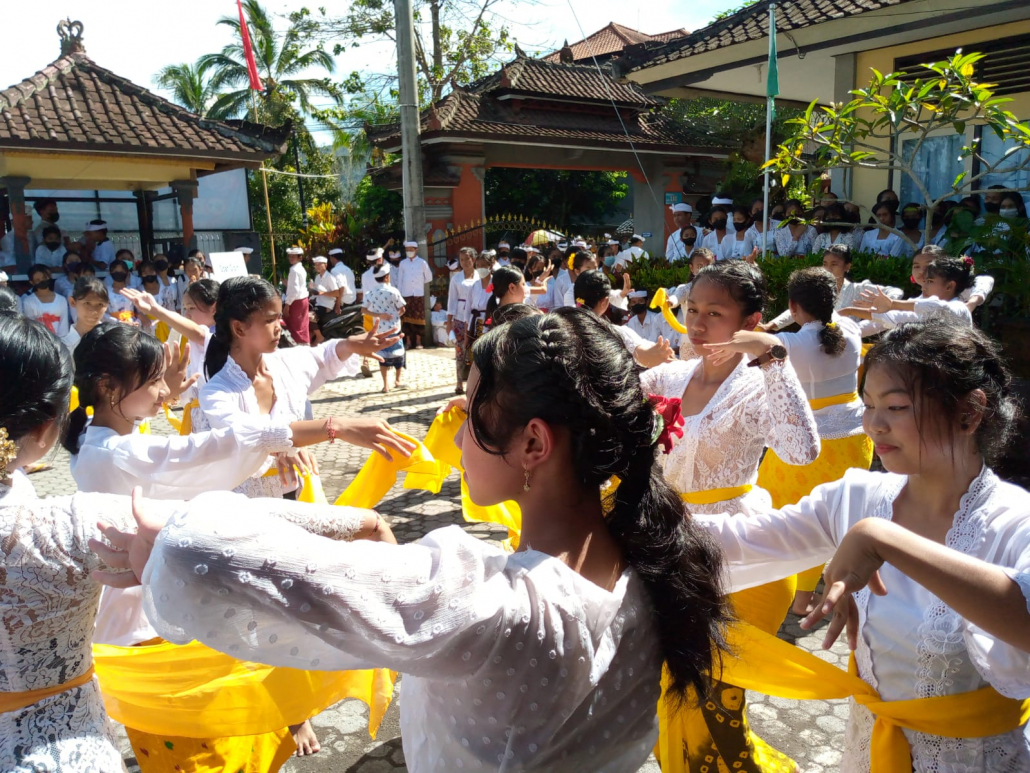
Saraswati Day is a celebration of learning, wisdom, and art, dedicated to Dewi Saraswati, the goddess of knowledge and creativity.
📚 What It Represents:
On this day, books, instruments, and tools of knowledge are blessed. Schools, temples, and homes hold special ceremonies and offerings. Children wear traditional attire and recite sacred texts, honoring the power of learning.
🌟 Traveler Tip:
If you’re staying in Ubud or near a school, this is a wonderful time to see students in full ceremonial dress, participating in rituals and dances.
🏨 Where to Stay During Nyepi – Embrace Silence in Style

Spending Nyepi Day in Bali offers a once-in-a-lifetime opportunity to disconnect from the noise of modern life and fully embrace the island’s spiritual stillness. Since no one is allowed outside (including tourists), the right hotel makes all the difference. Choose a resort that blends luxury, comfort, and natural beauty, so you can relax, reflect, and unwind during Bali’s sacred day of silence.
Here are our top recommendations:
✔️ The Kayon Jungle Resort – Nestled in lush rainforest with private infinity pools and wellness programs, it’s a perfect retreat for spiritual renewal during Nyepi.
✔️ Capella Ubud – For those seeking luxury and tranquility, this award-winning tented camp offers an immersive, nature-rich escape without sacrificing comfort.
✔️ The Mulia Bali – A sprawling beachfront resort with ocean views, indulgent spa services, and world-class dining, ideal for a quiet seaside Nyepi experience.
✔️ Bulgari Resort Bali – A clifftop sanctuary offering private villas with plunge pools—ideal for couples looking to reconnect in silence.
✔️ Andaz Bali – A beautiful fusion of modern design and Balinese charm, perfect for families or solo travelers who want a peaceful beachside retreat.
These resorts offer Nyepi packages that include meals, wellness sessions, and indoor activities—all designed to help you unplug and embrace Bali’s sacred pause.
Balinese ceremonies offer a glimpse into the island’s soul, where life is lived in harmony with the gods, nature, and community. They are not mere performances, but deeply spiritual events filled with rituals, beauty, and meaning. Whether you’re witnessing a colorful temple festival or a quiet daily offering, every ceremony reflects the devotion, artistry, and rhythm of Balinese life.
To truly understand Bali, you must experience its ceremonies—not just with your eyes, but with your heart. Let these moments slow you down, awaken your senses, and invite you to feel Bali’s sacred energy.
📸 Want to see more behind-the-scenes of Bali’s most stunning ceremonies?
Follow us on Instagram @baliexpertguide for real-time stories and cultural insights. 🌺✨